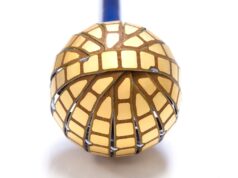
Biosense Webster has announced support for two collaborative studies, VIRTUE and POLARIS aiming to better understand the use and workflows with the investigational Varipulse pulsed field ablation (PFA) platform for treating patients with diverse arrhythmias.
The VIRTUE study is evaluating the use of the investigational Varipulse platform in a variety of atrial arrhythmias, including atrial fibrillation (AF) and atypical atrial flutter (AFL), either as first-time or redo procedures. Spearheaded by Vivek Redd (Icahn School of Medicine at Mount Sinai, New York, USA) the study began in September 2023 and aims to enrol 150 people.
“The VIRTUE study is designed to understand how this PFA platform can be used to treat a variety of patients,” said Reddy. “The Varipulse catheter and its integration with Carto holds promise to be a versatile tool for physicians treating many types of patients with atrial arrhythmias.”
A second collaborative study, POLARIS, is evaluating the use and 12-month effectiveness of pulmonary vein isolation (PVI) and posterior left atrial wall ablation, a commonly done ablation lesion set in clinical practice, using the Varipulse platform.
The study enrolled the first cases in December 2023, and aims to enrol 180 patients with paroxysmal atrial fibrillation (PAF) and 180 patients with persistent atrial fibrillation (Per AF) across four centres in the USA. The study is led by Moussa Mansour (Massachusetts General Hospital and Harvard Medical School, Boston, USA).
“The POLARIS study includes both paroxysmal and persistent atrial fibrillation patients,” said Mansour. “Results of the study will add to the growing evidence that could point to PFA as the next generation technology for cardiac ablation.”
“Biosense Webster is pleased to collaborate on these studies to further understand the use of the Varipulse platform for diverse anatomies and arrhythmia types,” said Jasmina Brooks, president, Biosense Webster. “We are committed to using multiple evidence generation approaches to lead the way in understanding PFA technology to inform future clinical practice.”









